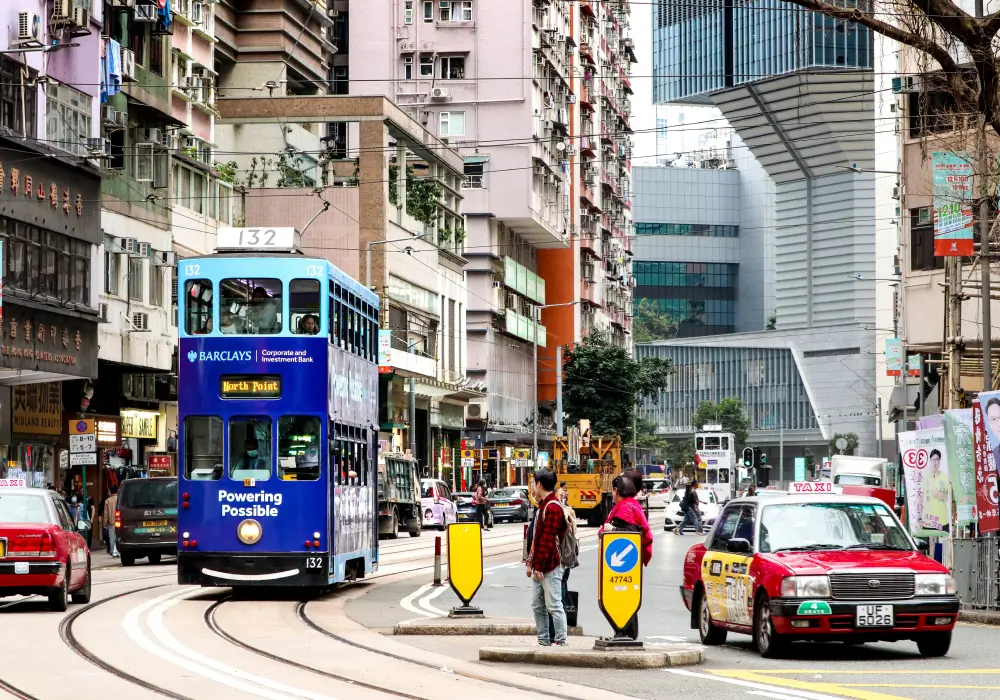
Cost of Living in Hong Kong: accommodation, food, and transportation
- 15 Oct 2024
- Living & Tax
For professionals planning careers in Hong Kong, understanding the real-life experience of settling in the city is crucial. Spend a few days visiting Hong Kong to gain a comprehensive understanding of its daily atmosphere and important factors such as workplace surroundings, accommodation options, transportation networks, and dietary habits. Visiting local markets and food centres can provide a direct experience of Hong Kong's lifestyle and culinary culture, helping you prepare thoroughly for your future life in the city.
Exploring accommodation options and living in Hong Kong
Even if you don't have a specific workplace in mind, you can consider Hong Kong’s core business districts as reference points for your accommodation search. The financial sector is mainly concentrated in Central and Admiralty, while Kowloon East has become a diverse commercial hub. Due to the recent boom in Hong Kong's innovation and technology sector, many startups and companies are establishing themselves in two major innovation parks — the Science Park in Sha Tin and Cyberport in Pok Fu Lam. If you're planning to move to Hong Kong, it's a good idea to familiarise yourself with these areas and search for accommodation within a 45-minute to 1-hour commute.
Rental prices can vary by location: The monthly rent of a 50-square-meter private residence, for example, is approximately HK$20,700 on Hong Kong Island, HK$18,800 in Kowloon, and a more affordable HK$14,200 in the New Territories. When choosing an area, consider local amenities, transportation options, and public facilities as well. Hong Kong's mixed-use buildings and estate malls, equipped with supermarkets, home appliance stores, and convenience stores, make daily life convenient for residents. For more housing guidance, refer to Housing 101: A quick guide for novice Hongkongers.
Hong Kong’s diverse culinary scene offers various dining options across districts. The Central and Western Districts features a range of International cuisines, while Kowloon City is known for Southeast Asian restaurants, and areas like Shau Kei Wan, Mong Kok, and Tsuen Wan for street food. And yet, the “Hong Kong-style cafe” Cha chaan teng and traditional dim sum restaurants can be found everywhere in the city. If, however, you wish to go more in-depth with the prices of local food and daily necessities and get a taste of authentic Hong Kong culinary culture, you should visit local markets, cooked food centres, and supermarkets! Regardless of the district, food expenses in Hong Kong typically account for 23% to 29% of monthly total expenditures, with a single-person household spending around HKD 4,171 on food and a household of 2 to 3 people spending about HKD 3,074 per person.
Insider tips on transportation discounts
Many newcomers to Hong Kong opt for the New Territories and outlying islands, attracted by lower building densities, better environments, and more spacious housing options. Despite longer commutes, Hong Kong's efficient transportation network and various discounts help offset costs. Bus and ferry companies offer monthly passes and transfer discounts. For example, the monthly transportation cost from Yuen Long to Admiralty is about HK$1,028, with a monthly pass providing a 12% discount. MTR offers monthly pass discounts and "Early Bird Discounts" for Octopus card holders on weekdays. Moreover, "MTR Fare Savers" allow adult Octopus card holders to enjoy a HK$2 discount at designated stations. Additionally, the Hong Kong government's Public Transport Fare Subsidy Scheme aids passengers whose monthly transportation costs exceed HK$400.
Now that you have a basic understanding of Hong Kong's cost of living, it's time to experience the city firsthand. Spend 4–5 days exploring the living environment and immersing yourself in local daily life. This hands-on approach will help you make concrete plans and ensure a smooth transition to work and life in Hong Kong.
Recent posts
-

Move to Hong Kong: Enjoy all-inclusive living amenities with family
- 31 Dec 2024
- Living & Tax
-

Hong Kong’s support for innovation and technology
- 20 Dec 2024
- Economic Developments & Potentials
-

Guide for non-local graduates seeking employment in Hong Kong
- 18 Dec 2024
- Living & Tax
-

The growing esports and gaming market in Hong Kong
- 29 Nov 2024
- Economic Developments & Potentials
-

Hong Kong's rise as a FinTech hub
- 28 Oct 2024
- Economic Developments & Potentials
-

Mastering market trends in Hong Kong to stay ahead of the curve
- 24 Oct 2024
- Economic Developments & Potentials
-

Tips for a stress-free relocation to Hong Kong
- 22 Oct 2024
- Living & Tax
-

Cost of Living in Hong Kong: accommodation, food, and transportation
- 15 Oct 2024
- Living & Tax
-

Elevate your creative career at the global stage of innovation in performing arts and art events
- 07 Oct 2024
- Economic Developments & Potentials
-

Thrive in Hong Kong: A promise of a clean and fair society for global talent
- 04 Oct 2024
- Living & Tax

